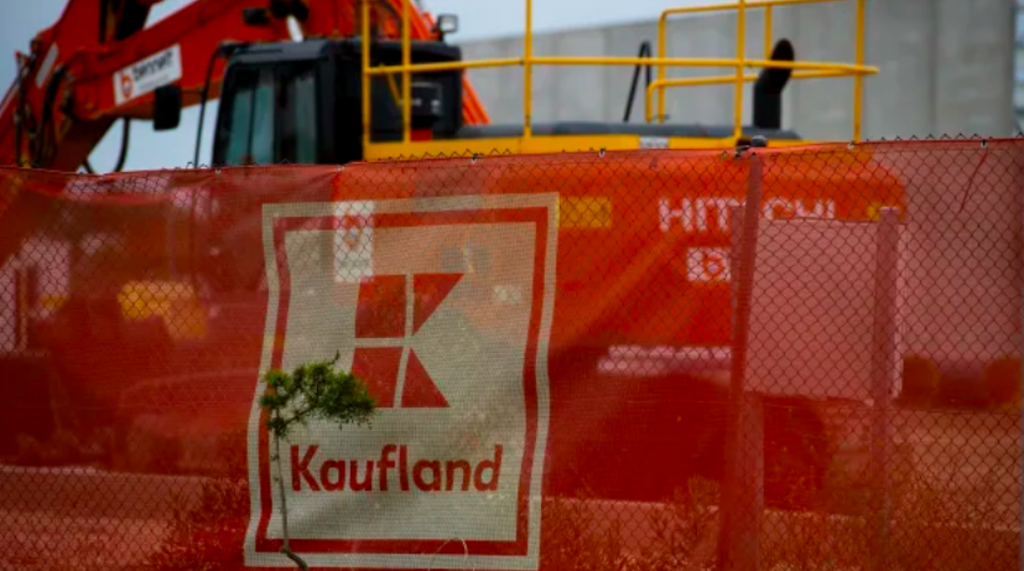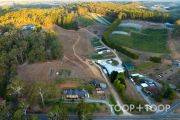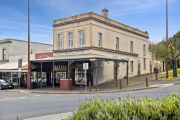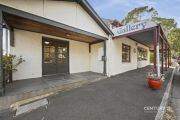
Kaufland exit leaves $600m property portfolio in limbo
Kaufland spent big and fast, committing more than $600 million to a portfolio of 10 major sites in Adelaide, Melbourne and south-east Queensland within two years of setting up shop in Australia in early 2017, property records show.
Its decision to exit was so sudden that yesterday, 24 hours after the announcement, trucks in Adelaide were delivering construction materials for a store that will never open.
Before its decision to exit this week, Kaufland Australia had accumulated about 56 hectares of development sites – half of which comprised its 115,000 square metres distribution centre in Melbourne’s north, to which it had committed $459 million and which would provide the backbone to its East Coast supply chain.
Kaufland also had development plans – some approved – to build stores in Newcastle, Toowoomba, Bendigo, Warrnambool and at Moorabbin Airport and Chirnside Park in Melbourne.
From this base Kaufland hoped to launch its assault on the $90 billion groceries market dominated by Woolworths, Coles and Aldi.
Four of the sites are former Bunnings warehouses (three in Melbourne, one on the Gold Coast) acquired from ASX-listed BWP Trust for a combined $74 million, which Kaufland planned to convert into its giant supermarkets.
Kaufland also acquired a large retail site in Morayfield, Brisbane for $20.5 million from Financial Review Rich Lister Bob Ell’s Leda Holdings.
With its Australian business abruptly aborted, a Kaufland spokesman said each site would be reviewed on a case-by-case basis.
23 sites in Australia
Highlighting the very sudden decision, he said the company had not yet looked closely at any of its property holdings, with its focus on assisting its 200 Australian employees who have lost their jobs.
He confirmed Kaufland had around 23 sites across Australia in total.
“Only a few were under construction. Where there are contracts in place, we will look to either sell them in their current status or complete them and then sell them,” he said.
Currently, under construction, are two Kaufland supermarkets in Adelaide – in Forestville and Prospect – from where Kaufland intended to launch its Australian retail offering.
On Thursday morning, when The Australian Financial Review visited, 20 construction workers from builder Sarah Constructions were continuing work at the Kaufland site in Prospect in Adelaide’s northern suburbs, with deliveries of steel frames and gravel still happening as trucks arrived through the gates and dropped off their loads.
The $24 million retail project is one of Kaufland’s most advanced, with nine-metre high concrete walls already up and a cement floor in place. It was to be a prototype and trial store to test various formats for Kaufland’s national roll-out.
One of the site supervisors from Sarah Constructions, Mauro Totani said it was ”business as usual” on the site for now and no further instructions had been received, but he declined to comment further, saying questions would need to go to head office.
Business as usual
Deliveries by building products group Boral occurred on Thursday morning at the Prospect site.
Kaufland late last year announced it would not be proceeding with a separate $24 million retail store in the outer northern suburbs at Munno Para in Adelaide, which now appears to have been an ominous sign of a re-think by Kaufland of its Australian plans.
Proposed construction of a second Adelaide store in the suburb of Forestville at the former Le Cornu furniture store site is much less advanced, with that site still being remediated.
Joshua Charles, executive director at property advisory firm One Commercial, said Kaufland’s decision to exit Australia would not have a material impact on the industrial and big-box retail markets because its distribution and warehousing needs were not as robust as, say, a Woolworths.
“No doubt part of their decision process was the difficulties in finding suitable locations.”
But, he said, it would be hard for Kaufland to lease its giant Merrifield warehouse because tenant requirements of 100,000 square metres are incredibly rare in Australia.
“The most likely outcome for that particular property is being acquired by a listed property trust who will alter the building to accommodate multiple 20,000 to 50,000-square-metre tenants.
“The former Bunnings’ sites acquired by Kaufland are mostly in high value, well exposed positions,” Mr Charles said.
As of February last year, Kaufland Australia had accumulated $8 million of leasing commitments, including office space leased from Dexus in its Axxess Corporate Park in Mount Waverley.
“The lease is not material in terms of portfolio income,” said a Dexus spokeswoman.











